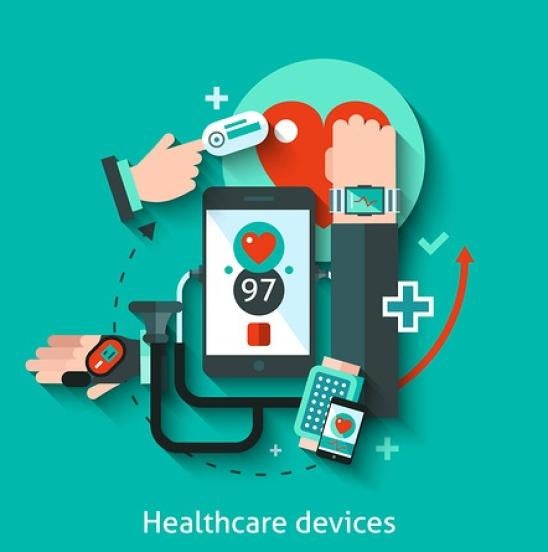Contingency management (CM) is a form of intervention treatment program that incentivizes patients with substance use disorders to observe certain conditions—such as non-use of drugs or alcohol confirmed via urine drug screening or breathalyzer test, or even drug therapy adherence—in exchange for something of monetary value. Adherence is often tracked and confirmed by those that provide the incentive payment through digital health technologies—including apps that can be downloaded to the patient’s smart phone or that are already downloaded to a smart phone provided to the patient as part of a CM program. While many contend that CM is an effective, evidence-based treatment, certain legal barriers limit, and often prevent, its widespread adoption and use. When there is the potential for patients to receive items and services payable by Federal health care programs (FHCPs), CM incentives are subject to scrutiny under the Federal anti-kickback statute (AKS) and the Beneficiary Inducements CMP. A recent advisory opinion issued by the United States Department of Health and Human Services (HHS), Office of Inspector General (OIG), approved a digital health company’s offer to provide cash equivalents to patients participating in a CM program. This favorable result continues to demonstrate OIG’s flexibility notwithstanding regulatory precedent or guidance appearing to the contrary.
The OIG’s Historical Position
The AKS, 42 U.S.C. § 1320a-7b, generally prohibits the offering or provision of remuneration—including the transfer of anything of value, directly or indirectly, overtly or covertly, in cash or in kind—in exchange for the referral of an item or service payable under an FHCP. While the AKS is criminally enforceable, the OIG may also impose administrative sanctions, including civil monetary penalties, assessments, and/or exclusion, for violating the AKS. The Beneficiary Inducements CMP, 42 U.S.C. § 1320a-7a(a)(5), also prohibits the offering or transferring of remuneration—including the transfer of items and services for free or for other than fair market value—to a Medicare or State health care program beneficiary that the person knows or should know is likely to influence that beneficiary’s selection of a particular provider, practitioner, or supplier for the order or receipt of an item or service payable by the Medicare or State health care program. Similar to the AKS, the OIG may initiate administrative proceedings against the person offering or transferring the remuneration.
As early as 2002 and as highlighted in recent guidance, OIG has explained its longstanding concerns relating to the offering of incentives intended to induce beneficiaries to obtain federally reimbursable items and services when those incentives have been cash or cash equivalents. However, through its advisory opinion process, OIG has blessed certain arrangements when cash equivalents have been offered or provided to beneficiaries. For example, in October, 2008, the OIG allowed a non-profit organization that provides outpatient treatment services for patients with psychoactive substance abuse dependence to offer incentives in the form of $5–$10 gift cards to motivate those patients to adhere to their treatment plans, which include urine drug screening and counseling sessions. And then, in December, 2020, the OIG determined not to impose any sanctions on a federally qualified health center’s proposal to offer $20 gift cards to patients to incentivize them to attend re-scheduled, preventative and early intervention care appointments even when the arrangement would not satisfy an exception under the Beneficiary Inducements CMP. The OIG’s most recent advisory opinion highlights, again, its flexibility for the provision of cash equivalents, particularly in the CM context.
Advisory Opinion 22-04
In Advisory Opinion 22-04, the OIG blessed an Arrangement relating to a program through which a digital health company (Requestor) provides patients with substance use disorders (Members) access to digital CM and related tools to treat substance use disorders (Program) and which is funded by customers that could include Members’ health care providers or suppliers (Customers). Members are held accountable for achieving their personalized behavioral health goals through the Program’s features: (1) appointment and medication reminders that include verification mechanisms, (2) drug, alcohol, and tobacco testing, (3) cognitive behavioral therapy modules, (4) surveys and assessments, (5) certified recovery coaching, (6) certified family partners for significant others and family members, and (7) daily virtual support groups moderated by certified recovery coaches and family partners.
While each reward is generally small ($1–$3), the total rewards can, in the aggregate, include cash equivalents of up to $200 per month, with a $599 per year cap, which are loaded onto a smart debit card in the Member’s possession (CM Incentives). However, Members are restricted from using the funds at bars, liquor stores, casinos, or certain other locations. The funds cannot also be converted to cash at ATMs or gas stations. These “abuse and anti-relapse protections” are controlled by Requestor such that access to the aforementioned types of transactions would be blocked.
Customers, which could include Members’ health care providers or suppliers, pay fees to Requestor on either monthly or pay-for-performance bases—the latter being premised on certain abstinence-based targets for Members. Regardless of the basis, the aggregate fees are fair market value, do not vary with the volume or value of referrals or business otherwise generated, but do vary based on the service configurations purchased by Customers and the intensity of the targets planned for each Member. For example, Customers pay a lower monthly fee for a Member’s smoking cessation or alcohol moderation, and a higher monthly fee for a Member’s alcohol or other substance use disorders. The cost differential for Customers is based on the digital interface with Members: Members receive text-based coaching only for smoking cessation or alcohol moderation, whereas Members receive text-based coaching, as well as video and voice-based coaching for alcohol or other substance use disorders. Requestor monitors Members’ activity in the Program and only bills Customers the fees and only rewards Members cash equivalents when those Members have achieved their specific behavioral health goals.
Based on its assessment of the Arrangement, OIG determined that there are two streams of prohibited remuneration: (1) Customers pay Requestor a fee to provide services, some of which could incentivize a Member to receive a federally billable service, and (2) some of the fees Customers pay to Requestor get passed on to Members as CM Incentives for achieving certain behavioral health goals, some of which may involve services that could be billable to FHCPs by a particular provider or supplier, which could be a Customer.
Notwithstanding these streams of remuneration taking the form of cash equivalents and not being protected by an AKS regulatory safe harbor or by an exception to the Beneficiary Inducements CMP, the OIG still concluded that the Arrangement presented a minimal risk of fraud and abuse based on a totality of the underlying facts and circumstances. The OIG highlighted four specific reasons. First, the OIG explained that the CM Incentives in the Program are part of a nationally-recognized, protocol-driven, evidence-based treatment program, rather than an inducement to seek, or a reward for having sought, a particular federally reimbursable treatment. Second, the OIG concluded that the risk of the CM Incentives encouraging overutilization of federally reimbursable services is low because the Requestor does not bill any FHCP for services furnished through the Program and the CM Incentive amounts are relatively low and not, by and large, associated with federally payable services. Third, the OIG reasoned that the risk that a Customer would pay Requestor’s fees to generate business or reward referrals of federally reimbursable services is low because the Requestor’s Customer base is not exclusively made up of individuals or entities that have incentives to induce Members to receive federally reimbursable services, the fees paid by Customers do not vary with the volume or value of any federally reimbursable services, and the Program is not driven or established by the Customers. Lastly, the OIG was comfortable with the remuneration in the form of the smart debit card—a cash equivalent. The OIG specifically reasoned that such form of remuneration is sufficiently low risk because the Arrangement’s safeguards, which include anti-relapse protections, outweigh and mitigate the fraud and abuse risks the CM Incentives otherwise carry, based on the OIG’s enforcement experience.
Key Takeaways
This favorable advisory opinion appears consistent with the OIG’s position relating to the provision of cash equivalents to beneficiaries as an incentive to receive items and services that may be payable under FHCPs. However, this stance appears to be inconsistent with certain of the OIG’s preamble explanations regarding the provision of such cash equivalents in the context of the new regulatory safe harbor relating to patient engagement tools and supports furnished by a value-based enterprise to a patient in a target population. As the OIG explained, the safe harbor was created “to improve quality, health outcomes, and efficiency”—recognizing “the important role that digital health technology plans in advancing [HHS’s] goals in connection with the Regulatory Sprint, including improving the coordination and management of patient care.” 85 Fed. Reg. 77684, 77688, 77782 (Dec. 2, 2020). The safe harbor protected remuneration in exchange for treatment or follow-up care plan adherence, so long as the incentives did not take the form of cash or cash equivalents, including debit cards, rebate checks, and most gift cards. See, e.g., id. at 77781, 77782–3, 77789–90, 77791. The OIG notably determined these forms of remuneration not to be protected under the new safe harbor due to its “longstanding concern about the fraud and risks inherent” in providing them, without reference to its historically-favorable advisory opinion approach regarding the same and even though certain commenters urged the OIG to allow these types of rewards because of their proven benefit under evidence-based methodologies. Id. at 77789, 77790. Nonetheless, the OIG did not entirely close the door to cash equivalents (or even cash) for the benefit of future requestors of advisory opinions. The OIG seems to recognize that certain CM interventions for substance abuse disorders developed through support from other government agencies, including the National Institutes of Health, could be beneficial—clarifying that any proposal to provide remuneration is ultimately analyzed on a case-by-case basis, as is available under the OIG’s advisory opinion process. Id. at 77790, 77791.
As technology expands and the regulatory landscape in the health care industry evolves, the Firm is available to provide compliance advice and guidance for providers, digital health companies, and others as they consider entering the market, growth opportunities, or submitting advisory opinions to the OIG about the risks involved with taking such actions.



 i
i

